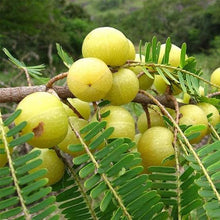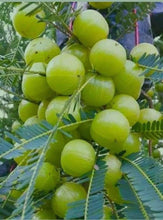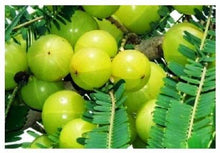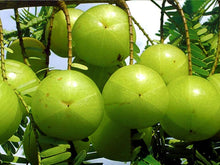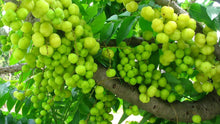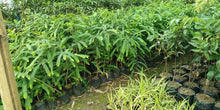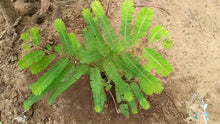
- Common India Names: Amalaka, Aonla, Nelli, Nellika, Heikru, Nellikkay, Amla, Amala, Usiri, Avalo, Awalah.
- Thai Variety Sweet Amla Plant.
- Fresh & Healthy Live Plants
- Plant On Poly bag with good care
- Safe & Quick Delivery by Courier.
- Suitable for Indian Climate
- Wel known as emblic, emblic myrobalan, myrobalan, Indian gooseberry, Malacca tree
Fresh & Healthy Live Plants On Poly bag with good care Safe & Quick Delivery by Courier Suitable for Indian Climate No need to extra care. Phyllanthus emblica, also known as emblic, emblic myrobalan, myrobalan, Indian gooseberry, Malacca tree, or amla from Sanskrit amalaki is a deciduous tree of the family Phyllanthaceae. It is known for its edible fruit of the same name. According to Ayurveda, amla balances all three doshas (fundamental bodily bio-elements) – pitta, vāta and kapha. While amla is unusual in that it contains five out of the six tastes recognized by Ayurveda, it is most important to recognize the effects of the “virya”, or potency, and “vipaka”, or post-digestive effect. Considered in this light, amla is particularly helpful in reducing pitta because of its cooling energy. It also balances both pitta and vāta by virtue of its sweet taste. The kapha is balanced primarily due to its drying action. It may be used as a rasayana (rejuvenative) to promote longevity, and traditionally to enhance digestion (dipanapachana), treat constipation (anuloma), reduce fever (jvaraghna), purify the blood (raktaprasadana), reduce cough (kasahara), alleviate asthma (svasahara), strengthen the heart (hrdaya), benefit the eyes (chakshushya), stimulate hair growth (romasanjana), enliven the body (jivaniya), and enhance intellect (medhya).







